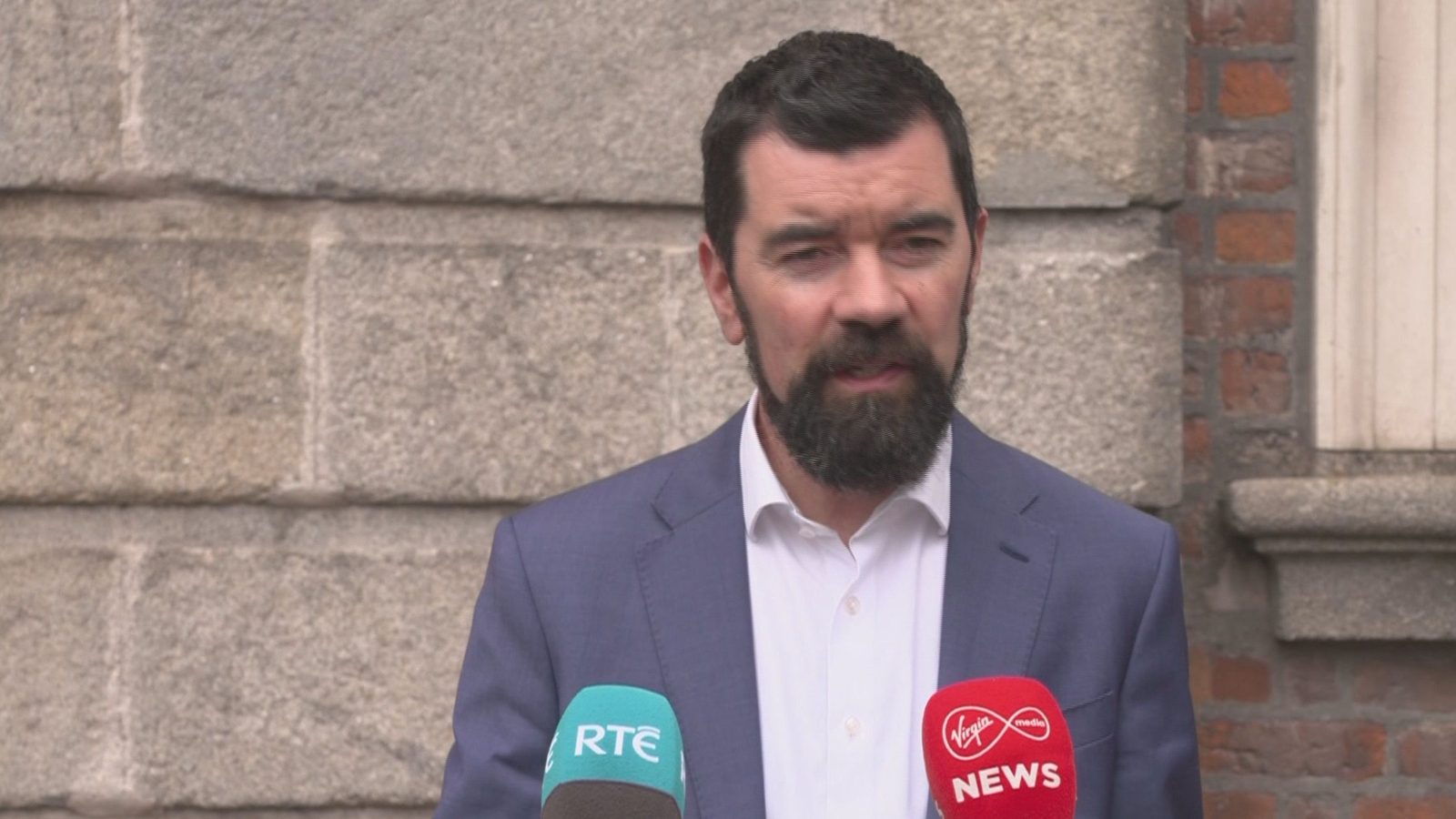World
Govt launches recruitment project to counter division

The Department of Community and Rural Development has announced a recruitment project which will see people work with communities to counter division in areas where IPA centres/Direct Provision and Ukrainian refugees are located.
The Minister of State Joe O’Brien has said further work is required across communities to enable integration to happen.
Thirty community workers will “be going in” to locations as soon as possible according to the Minister and will work with communities before accommodation centres are opened, during openings and in places where accommodation has already opened.
Speaking to reporters outside an event at Dublin Castle to ‘showcase’ the work communities have done around the country to integrate International Protection Applicants and Ukrainian Refugees, he said community workers would be additional to those who already work with people who have newly arrived in the country.
A number of protesters were outside the gates of Dublin Castle this morning to voice their opposition to the transfer and relocation of asylum seekers and Ukrainian refugees respectively, in order to free up accommodation for newly arrived International Protection Applicants and for the tourism sector.
Ola Mustapha who has status and has lived in Direct Provision in Ballyhaunis for 10 years recently received a transfer letter. She said that leaving the community would mean abandoning the life she has built for herself by having to start all over again.
“That is not integration is about”, she said, “I’ve built my journey in that community and it would be unfair to leave that life and go start somewhere else. It’s bizarre”.
While Ms Mustafa said she understood that other people needed accommodation, she said the Government needed to offer more support to transfer from Direct Provision into wider communities.
While there are transfer teams across regions run by Depaul and the Peter McVerry Trust, numerous asylum seekers with status have told RTÉ News that the system is inadequate.
“There should be more investment in the application process when you get your status. As someone who is not from Ireland originally, the barriers we face are multifaceted, it’s not something an Irish person would face”, according to Ola Mustapha.
She believes the Government needs to “sit back” and “have a rethink” and consult with grass root communities and with people’s whose lives are impacted directly.
There has been some disquiet amongst volunteers and funded organisations over the event that was held in Dublin Castle today due to the fact it was a “showcase” of integration while transfers and relocations are ongoing.
It’s clear there is anger amongst many people who have worked doggedly to ensure those who have arrived in their communities have been integrated in recent years.
One community worker in Clare which is a county renowned for its integration skills, equated it to an election football “kicking people around the country, which is unforgiveable”.
She said every politician and political party should be “ashamed” with the way the issue has been handled.
Mark Malone of the Hope and Courage Connection Ireland who organised the protest outside Dublin Castle this morning expressed concern over where he believes Government policy is beginning to lean.
“I think there’s definitely been a sway with regard to some of the anti migrant activity that we’ve seen bleeding through with changes to policy. We’ve seen multiple reports from a human rights basis, around the negative impact and harmful of Direct Provision itself, so in many ways this is an extension of state policy that we’ve seen for a long time as well as being impacted by the more recent far right activity. It doesn’t reflect the vast majority of people’s views in Ireland, it doesn’t reflect the work happening right across communities.”, he said.
Minister Joe O’Brien acknowledged that the situation was a difficult one, but he said that due to the emergency situation, the accommodation being offered in recent years was never going to be long-term.
“We’ve put people into accommodation situations that never really had a long term viability, or never had a long term future, they were always going to be temporary”, he said.
Minister O’Brien said the Department had tried to “time the movements” to coincide with summer or school holidays to make disruption “as minimal as possible”,.
While he said what was happening was not perfect, “we’re between a rock and a hard place in terms of trying to make sure people are safe, while also trying to disrupt their lives as minimally as possible”.










